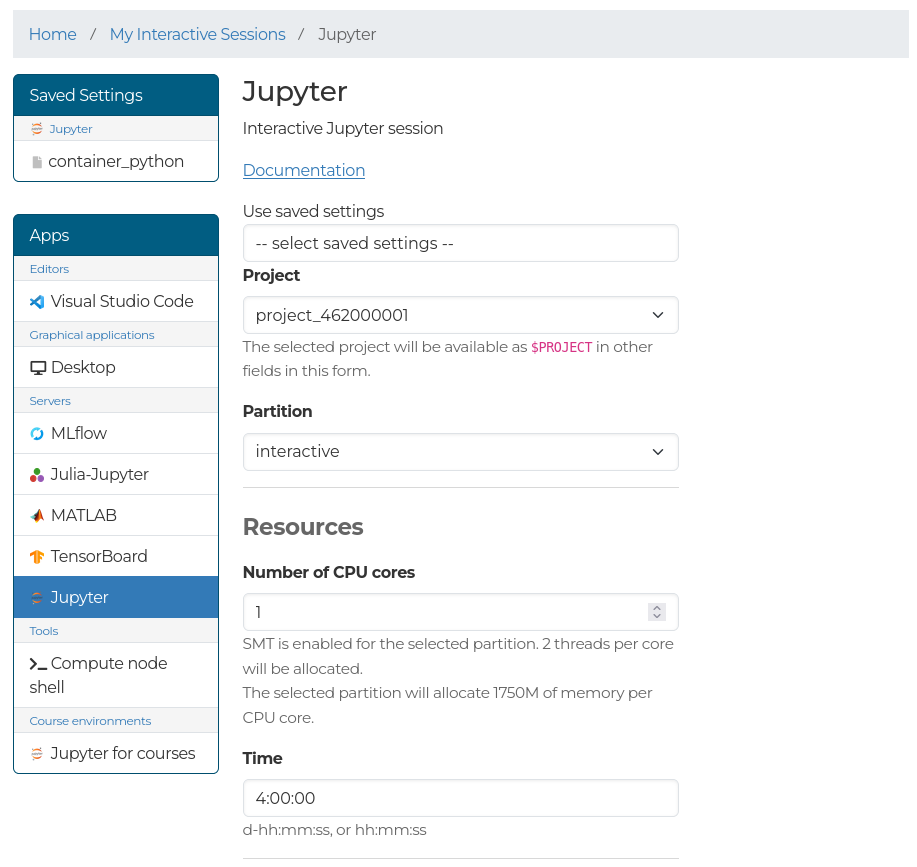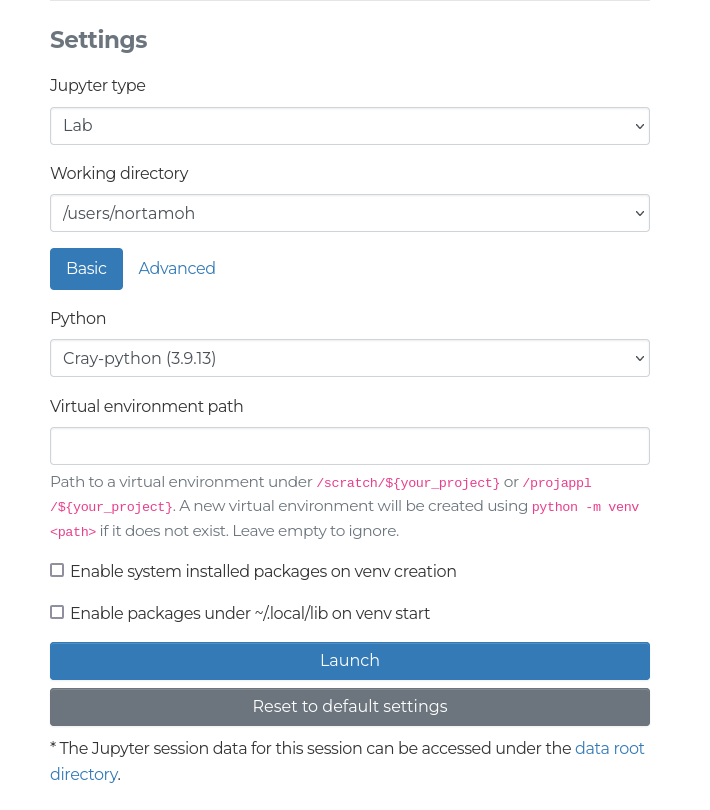Jupyter
The Jupyter app launches Jupyter Lab on a LUMI compute node, which you can access from the web interface.

In the form you will be able to select:
- Working directory: The directory where your notebook file is stored.
- Basic or Advanced:
The Basic setting allows you to use a Python module provided by the system, with either a virtual environment or user-installed packages to extend the module.
The Advanced setting lets you set up the Python environment either using a script provided in the form, or a path to a script.
For more details about these, see the sections below.

Basic¶
In the basic settings, the following settings are available:
- Python: Two Python modules are provided:
cray-python, andpytorch 2.0, which has limited support available. You can also select Custom to provide a full path to the Python interpreter you want to use. - Virtual environment path: If the provided path does not exist, a new virtual environment using the module, or Python interpreter, selected will be created. If an existing path is provided, that virtual environment will be used. Note that virtual environments created outside the web interface are not guaranteed to work, so creating your virtual environments in the web interface is recommended. If the field is left empty, no virtual environment is created or used.
- Enable system installed packages on venv creation: If you are basing your Python environment on an existing Python module, you should enable this setting to ensure that you are able to use the Python packages provided by the module. If you are creating a Python environment, and only using the modules to provide a specific Python version, you can disable this setting.
- Enable packages under ~/.local/lib on venv start: Enables using packages installed using
pip --user installin virtual environments. It is recommended to leave this disabled to avoid conflicts in package versions.
Advanced¶
In the advanced settings, you can find the following settings:
- Custom init Text / Script to start: Enter the full script for configuring up the environment to run JupyterLab in the text box.
- Custom init File / Path to script: Enter the path to the script for configuring the environment to run JupyterLab in the text box.
Bash will source the script or path to script before starting Jupyter.
To ensure that Jupyter launches correctly, ensure that python is available on the path, and the jupyterlab package has been installed.
Jupyter will be launched using the command python -m jupyter lab.